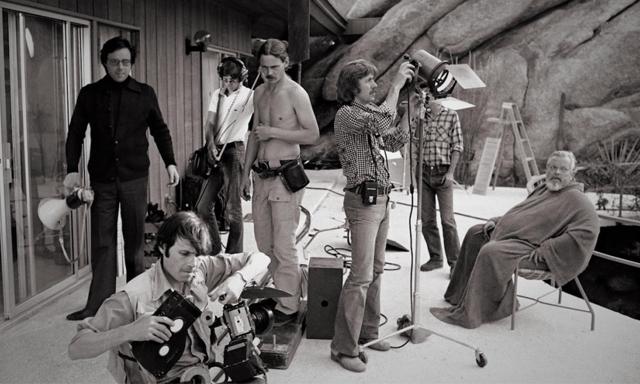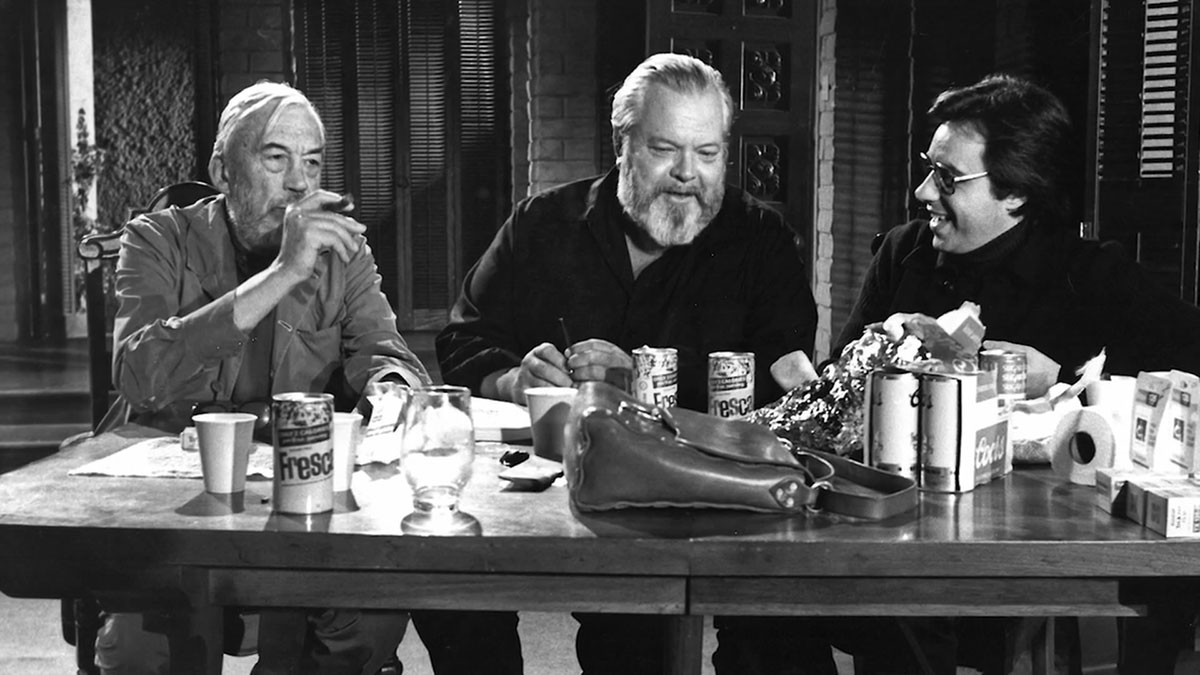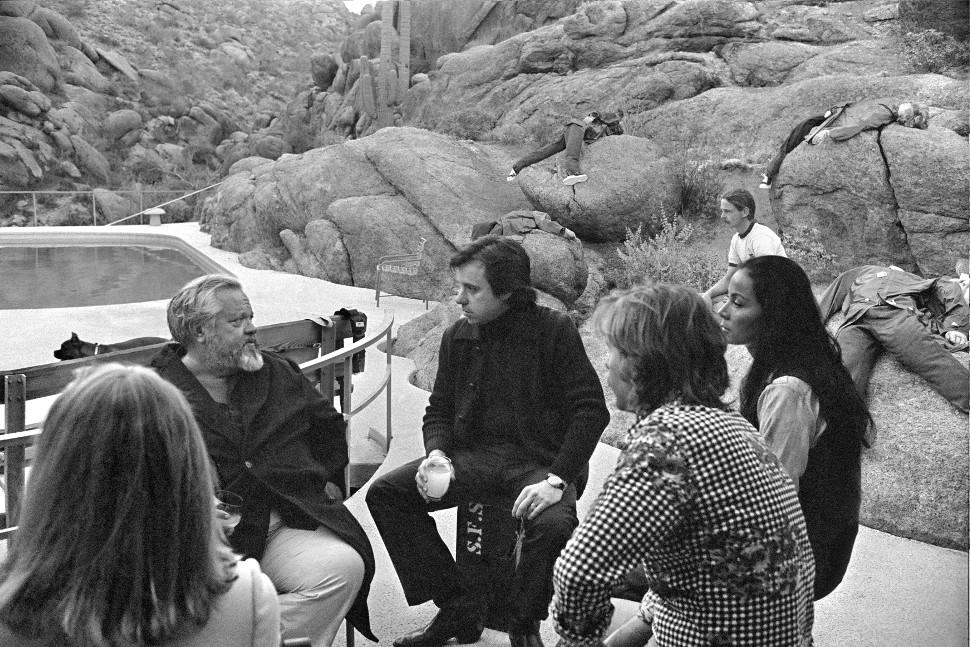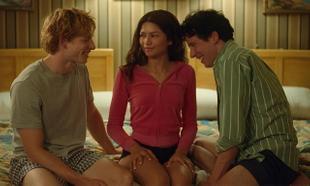Narrated by Alan Cumming and directed by Morgan Neville (the Academy Award-winning director of ‘20 Feet From Stardom’), ‘They’ll Love Me When I’m Dead’s title is based on an alleged Welles quote. The director denied having ever said it. He also denied that ‘Other Side’ is semi-autobiographical, in spite of the clear similarities to his life.
In case you’re unaware, ‘Other Side’ shares a similar reputation to ‘Don Quixote.’ Both are notorious for getting stuck in development/production/editing for years. Shooting took place over six years for 'Other Side.' Then Welles kept cutting and re-cutting it up to his death. After staying in limbo for years, Netflix released a 2-hour cut of the film that premiered in Venice last August.
Interview footage provides fascinating material and insight into Welles' enigmatic character. He talks of ‘divine accidents’ as making film extraordinary, and on another occasion, says he believes betraying your friends is worse than betraying your values. Others provide their own interpretations of Welles, mostly through the lens of ‘Other Side.’ One comments that the film is an exploration of Welles’ desires. Another says that the movie was a desperate production carried out by desperate men. Yet another is convinced the 'Other Side' helmer just made things up as he went along.
At the time production kicked off, the timing seemed just right for ‘Other Side’. Hollywood was in a more experimental era than ever. The satirising of European art cinema, and film-within-a-film structure of Welles’ work, would have gone down well. The director had been abandoned by Hollywood, living in Europe for years, and while the doc makes clear that personal demons plagued the shoot and post-production process, the absence of financial and emotional support from Hollywood to help Welles complete the movie also played its part in leaving ‘Other Side’ in limbo.
‘They’ll Love Me’ does a good job at portraying a sympathetic portrait of Welles. We see how ‘Citizen Kane’, supposedly the greatest film ever made, meant that every film he made after was compared to it. In fact, Welles didn’t even consider ‘Citizen Kane’ his greatest movie.
At the same time, director Neville doesn’t let Welles completely off the hook. Interviews with Peter Bogdanovich, Welles’ loyal companion and co-star of ‘Other Side’, reveal how difficult he could be. Welles’ daughter speaks coldly of him. We learn he had an affair with Oja Kodar, another star of ‘Other Side’, and see how he made the set of his final film both an exciting and very challenging place to be.
Well-paced and edited with a tongue-in-cheek ending, film aficionados will appreciate the doc greatly. However, there’s little on offer for those without knowledge of Welles’ significance and work.












































































